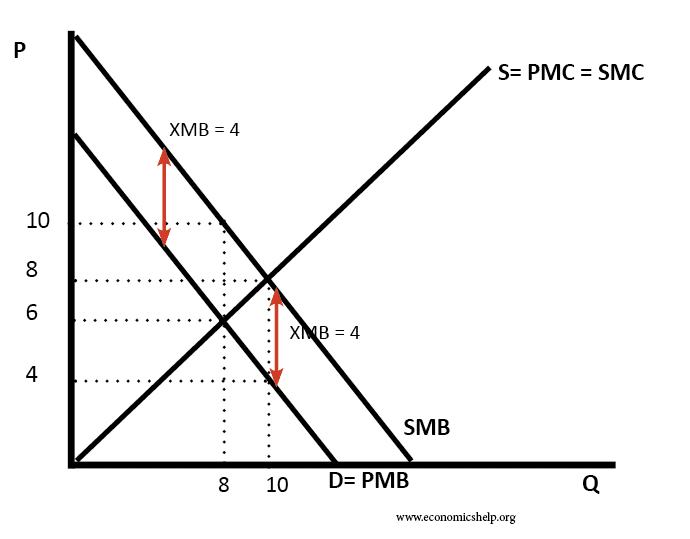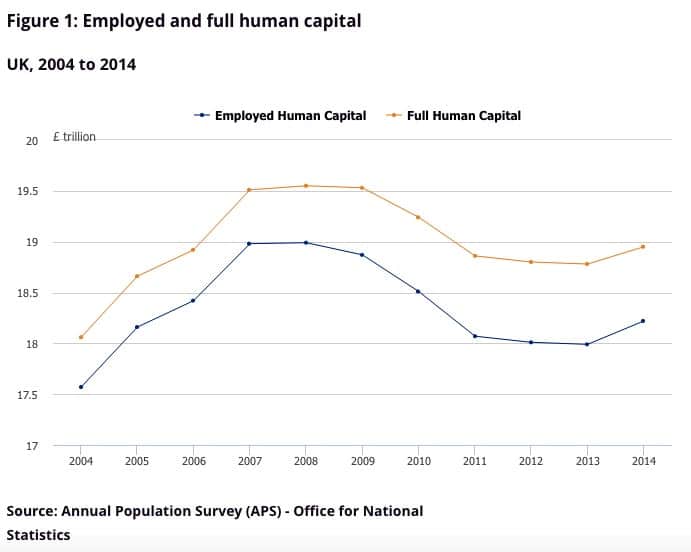Readers Question: Is education a consumption good or investment good? And why
I would say education can be both a consumption good and an investment good.
- Consumption is defined as spending money on a good or service for the acquisition of utility.
- Investment is defined as spending money on a good or service for the acquisition of future utility.
Education as consumption
Education gives personal benefits to the individual who consumes education (both in the present and in the future). If you decide to pay for a college degree, you are hoping to get the benefits of qualifications, an enjoyable few years at college, the pleasure of learning and a better-paid job at the end.
The cost of education is not just in terms of tuition fees but the opportunity cost of time. At 18, an individual may feel they could choose either more education or start working straight away. When a young adult chooses to spend their money on a college education, there is an element of both personal consumption – enjoying the degree and the activity of studying. There is also the element of investing in future income by spending time and money to get qualifications.
For many adults, they may decide to consume education in the form of IT skills, language skills or improve basic literacy. In this case, the adult is hoping to get a pretty quick return from their decision to study.
Education as investment in human capital
When young children go to primary school, we don’t tend to think in terms of the young child ‘consuming’ education. It is more an investment for the future of the child and also the future of the economy. However, there is still an element of consumption because the child gains utility from the act of going to school – not just the long-term benefits.
Education eads to an improvement in human capital. Human capital is the skills, knowledge and capacity of a worker. Therefore education is definitely a form of investment because it seeks to increase human capital, improve labour productivity and create a more skilled workforce. This is why many governments are willing to invest in education because n the long-term, the economy will benefit from having a more skilled workforce.
Overall, education would probably be more classed as an investment good – both personal investment and public investment. However, there is an element of consumption because people may choose education for the short-term benefits and utility of studying.
Education – private and social benefit
Another aspect of education is that it gives personal benefits to the student, but also external benefits to the rest of society. If you become a trained economist, you can get a highly paid job in that field. However, the economist will (hopefully) create some external benefits for society, e.g. becoming a teacher or providing economic models which can increase social welfare.
Therefore, the social benefit (social benefit = private + external benefit) is greater than just the private benefit. This is another justification for government provision of education, free at the point of use.

Education as a merit good
A merit good is characterised as a good where individuals may under-estimate their own utility from consuming the good. When we are 18, we may ignore or be unaware of the potential benefits of studying to gain vocational qualifications. Therefore, we make a judgement that education may be under-consumed in a free market.
Merit good also usually has external benefits – in the form of a more educated workforce.
Education as a public good/ public service.
In non-economic terms, people may call education a public good/public service. This is because of the social benefits arising from education. However, in a strict economic sense, education is not a public good because it is rival and excludable. (There are only so many people who can sit in a classroom.) A public good needs to be non-rivalry, non-excludable.
However, you could argue that reading an economics site like this is close to a public good because it is non-rival and (so long as you have internet access) non-excludable.
Related concepts


Education is an investment in oneself, and its value can never be underestimated. It is not just a means to a career, but a tool for personal growth and development. Education provides one with the necessary knowledge and skills to navigate the complexities of life, to make informed decisions, and to become an active and engaged citizen of society. It is indeed a good that enriches one’s life in countless ways. For those seeking assistance with their college papers, sites like https://essayusa.com/buy-college-papers/ can be a helpful resource to ensure the highest quality of work